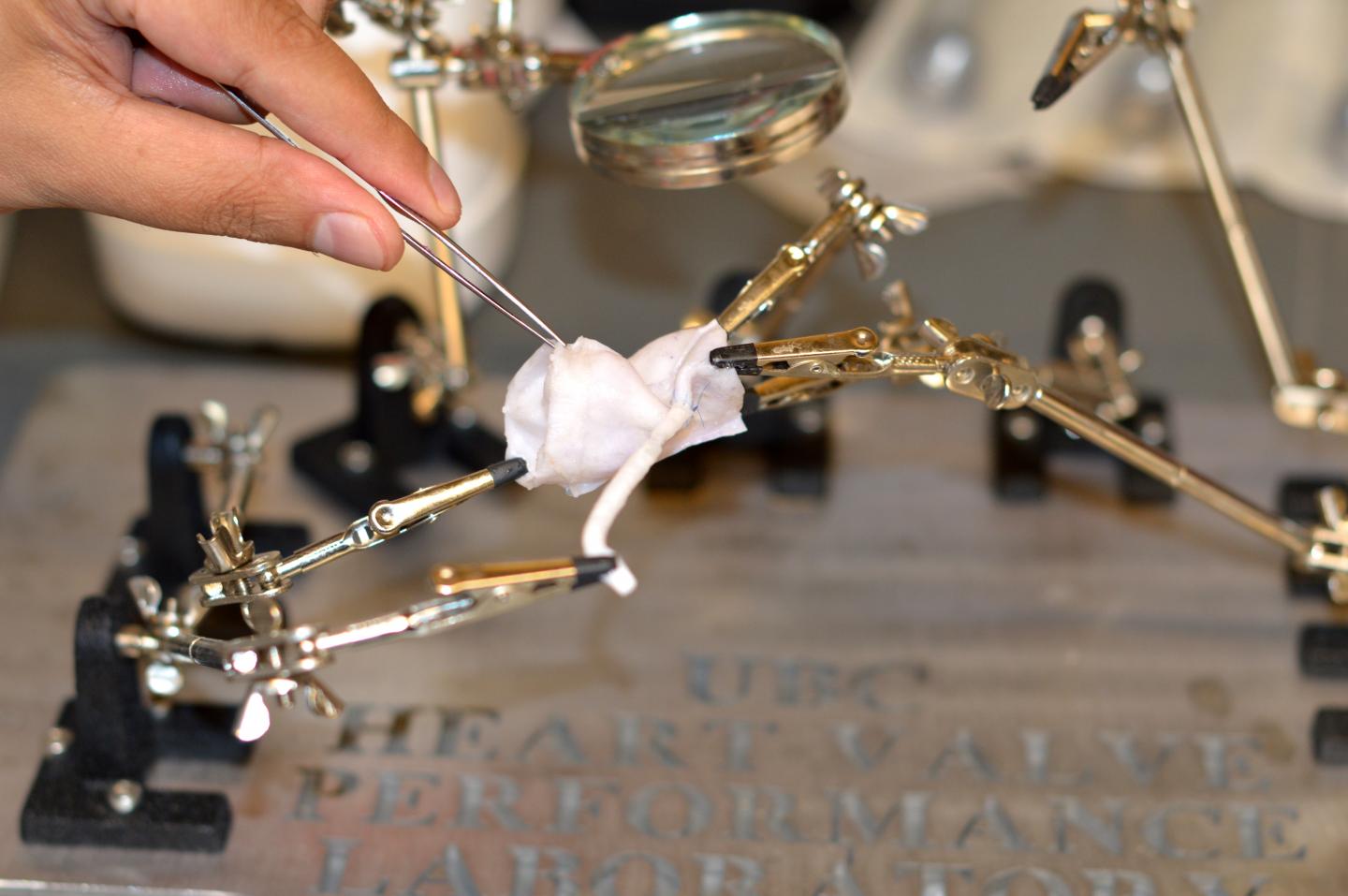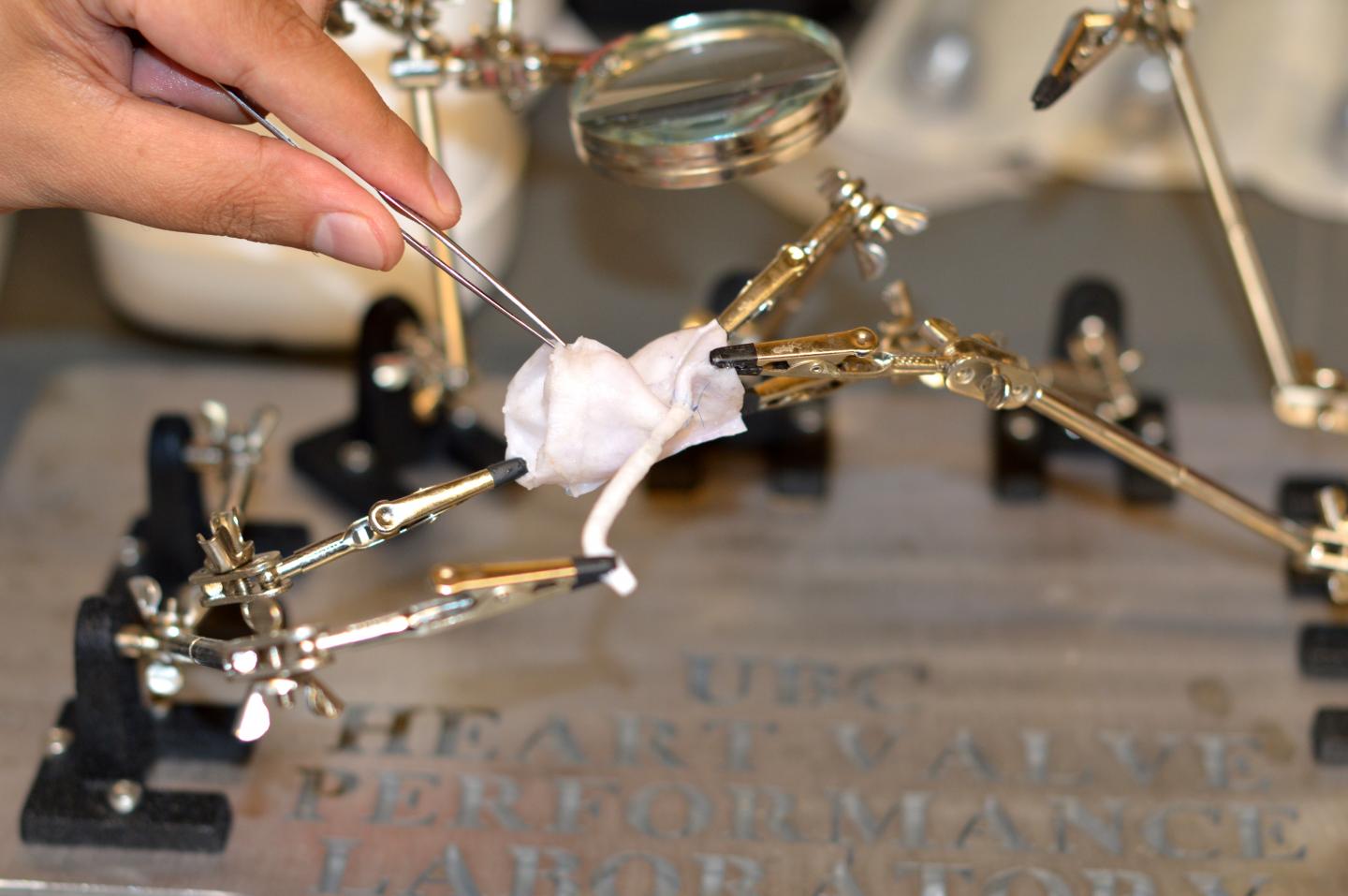
Credit: UBC
A UBC invention has made it possible for doctors to vastly improve their bypass surgery techniques without relying on animals.
The invention–synthetic heart valves, arteries and veins made of polyvinyl alcohol hydrogel–was created by researchers at UBC's Okanagan campus
The polyvinyl "tissue" makes it possible for surgeons and medical residents to practise bypass surgery using the synthetic material as opposed to the current practice of using the arteries and veins of dead pigs or human cadavers.
"One of the major issues with using arteries from human or animal cadavers is that they break down very quickly if they are not treated with preservatives," says inventor and Assist. Prof. of Engineering Hadi Mohammadi. "This synthetic material doesn't decompose and can't be contaminated, meaning doctors can practise their technique almost anywhere.
"An added benefit is that this material can be created safely and cheaply, which could solve any issues surgeons currently have in accessing practice materials."
The invention, currently only used for teaching purposes, is already being used by a number of surgeons and medical residents at the Kelowna General Hospital (KGH) in British Columbia's interior.
The new synthetic material is designed to feel like living human tissue and provides a number of benefits over what is currently being done, says co-inventor Dr. Guy Fradet, head of cardiovascular surgery at KGH and an associate professor in UBC's Faculty of Medicine.
"A problem with using arteries from animals or human cadavers for practising bypass surgery is that they feel different than living human tissue," says Fradet. "The more realistic we can make surgical practice, the easier it will be to prepare surgeons for the operating room, which can only benefit patients."
The synthetic heart valves, veins and arteries are currently being used to practise bypass surgery on actual hearts harvested from pigs.
The two inventors are currently working towards creating a synthetic heart using the new material, which could then be used to largely eliminate the need to use any animal or human cadaver tissues and organs when practising heart surgery.
Mohammadi and Fradet's research was recently published in the journal Cardiovascular Engineering and Technology.
###
Media Contact
Matthew Grant
[email protected]
778-628-3093
http://ok.ubc.ca/welcome.html





